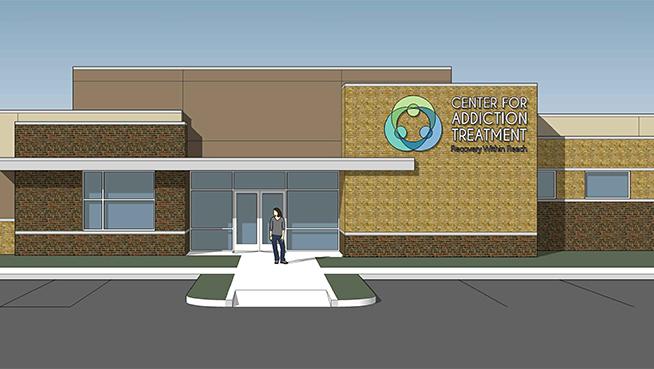Browsing the Journey of Detoxification in the Comprehensive Addiction Treatment Program
Getting started on the course of detoxification within the structure of a thorough dependency therapy program is a crucial phase in the journey in the direction of recovery. The process of detoxing holds a substantial role in breaking the physical dependence on compounds and preparing the person for the succeeding stages of therapy. Browsing with cleansing is not merely an issue of physical cleansing; it requires an intricate interaction of mental, psychological, and social elements that call for careful factor to consider and assistance. As people grapple with the obstacles of withdrawal symptoms and the unpredictabilities that lie ahead, having a robust assistance and an organized strategy system in area becomes critical. In this conversation, we will discover the multifaceted facets of detoxification within the extensive addiction therapy program and dropped light on the vital elements that shape this transformative journey in the direction of recuperation.
Significance of Detoxification in Recuperation

Cleansing establishes the structure for the remainder of the dependency treatment program by preparing the person for more treatment and therapy. By cleansing the body of substances that have actually been clouding judgment and influencing habits, detoxification allows patients to approach their recovery with a clearer mind and stronger emphasis.
Moreover, cleansing helps in handling the possibly serious withdrawal symptoms that may occur when medicine or alcohol use is quit. Doctor carefully keep track of clients throughout detoxification to guarantee their security and supply essential assistance. Through this process, individuals can start their trip in the direction of soberness with a maintained physical and mental state, enhancing the possibility of an effective recovery.
Understanding the Detox Refine
Cleansing, an essential component of addiction therapy programs, includes an organized procedure focused on safely eliminating unsafe substances from the body to help with a successful recuperation trip. The detoxification procedure normally begins with an evaluation to evaluate the individual's substance use background, physical health and wellness, and psychological health. This analysis assists medical care specialists figure out one of the most appropriate detoxification plan customized to the person's demands.
During detox, the body undergoes withdrawal as it gets used to the lack of the compound. Withdrawal symptoms vary depending on the kind of compound utilized, the duration of use, and private factors. Medical supervision during detoxification is vital to handle withdrawal symptoms and make sure the individual's security and convenience.

Handling Withdrawal Signs And Symptoms

Drugs might be utilized to ease specific withdrawal symptoms and lower pain. For example, medicines like methadone or buprenorphine can help handle opioid withdrawal symptoms, while benzodiazepines may be used for alcohol withdrawal. It is important for health care companies to thoroughly monitor the person's action to these medications to guarantee their security and efficiency.
In addition to medicinal treatments, helpful therapies such as therapy, peer support system, and alternative techniques like mindfulness meditation or yoga exercise the original source can help individuals manage the mental and emotional difficulties of withdrawal. By resolving withdrawal signs adequately, medical care companies can enhance the detoxification experience and assistance individuals on their trip to recovery.

Support Equipments During Detoxification
Support systems play an essential duty in offering psychological and social help to people undergoing cleansing in addiction treatment programs. During the detox procedure, people usually experience a variety of psychological and physical withdrawal symptoms, making this phase tough - Addiction Treatment Center. Having a strong support group in position can significantly influence the individual's capacity to browse through detoxification effectively
Support groups provide a platform for people to attach with others who are going with similar experiences, supplying a feeling of area and shared understanding. Health care professionals, consisting of therapists, doctors, and therapists, play an essential role in keeping track of the person's development, supplying clinical assistance, and offering support throughout the detoxification process.
Looking Ahead: Life After Detoxification
Having effectively finished the detoxing phase, individuals in dependency therapy programs currently concentrate on planning for the difficulties and possibilities that lie ahead in their journey in the direction of recovery. Life after detox notes an important change period where individuals have to continue to build on the development made during detox to preserve their soberness. It is vital for individuals to acknowledge that the journey towards recovery is ongoing and requires dedication, commitment, and a willingness to embrace change.
One key aspect of life after detoxification is the advancement of coping systems to handle triggers and food cravings that may occur. This may involve learning brand-new abilities, such as mindfulness methods, cognitive-behavioral methods, and anxiety administration methods, to browse difficult circumstances without turning to compound usage. Furthermore, individuals are motivated to actively engage in ongoing therapy, assistance teams, and aftercare programs to reinforce their assistance network and get support as they navigate the complexities of life post-detox.
Conclusion
Finally, detoxification is a vital element of the detailed addiction treatment program. Recognizing the detoxification process and managing withdrawal symptoms navigate to these guys are crucial actions towards recovery. Assistance systems play a considerable function during this tough trip. Addiction Treatment Center. Looking in advance, life after detoxification holds pledge for a much healthier, substance-free future. It is vital to identify the significance of detox in the procedure of getting over dependency and relocating towards a life of soberness.
Clinical guidance during detox is crucial to handle withdrawal signs and ensure the individual's safety and security and comfort.
By comprehending the detoxification procedure and its importance in breaking the cycle of dependency, people can embark on a path in the direction of lasting recuperation.
Throughout the detox process, individuals usually experience a range of physical and mental withdrawal symptoms, making this phase challenging. Healthcare experts, consisting of specialists, therapists, and helpful site medical professionals, play a vital duty in checking the person's progress, providing medical support, and offering assistance throughout the detox process.
Life after detox marks a crucial transition period where individuals should continue to build on the progress made during detoxification to maintain their sobriety.